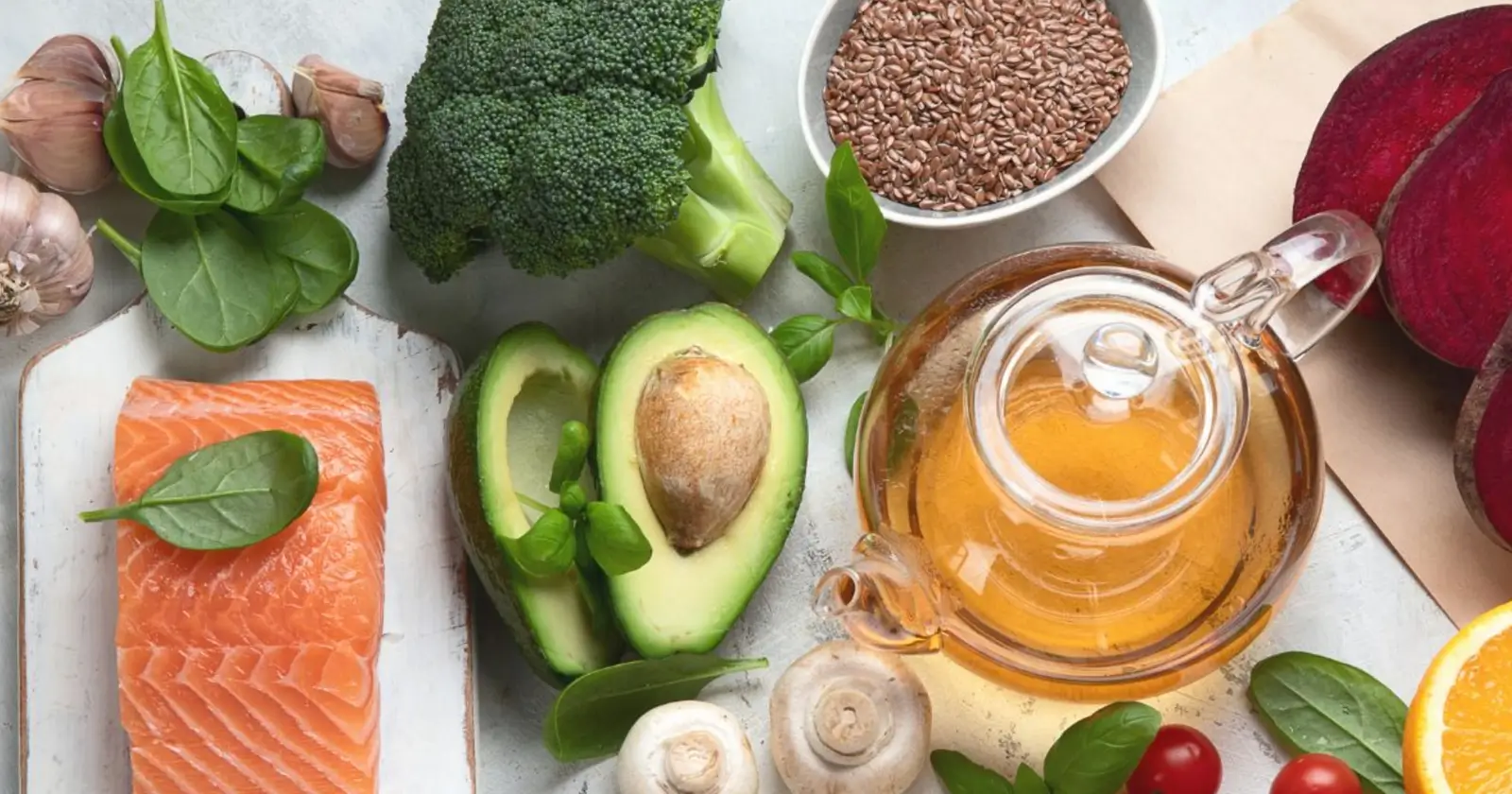While managing our health, we often focus on weight and calorie counting. However, regulating cholesterol levels is equally crucial. (Here are some cholesterol-lowering foods you can consume daily.) Cholesterol aids the body by producing hormones, creating bile in the liver, stimulating tissue formation, and supporting healthy cells. It’s well-known that high levels are linked to cardiovascular issues like stroke and heart disease, but many don’t realize there’s also a significant connection between cholesterol and cancer.
Professor Erik R. Nelson, from the Department of Molecular and Integrative Physiology at the University of Illinois at Urbana-Champaign, published findings in Endocrinology showing a link between cholesterol metabolism and cancer progression. According to the research, cholesterol may directly affect cancer cells and the immune cells around them. The American Heart Association (AHA) advises that all adults, starting at age 20, check their cholesterol every four to six years. The readings include total cholesterol, HDL (“good”) cholesterol, LDL (“bad”) cholesterol, and triglycerides (the fat that stores calories).
Cholesterol is found in animal products, so eating balanced meals is ideal. When life disrupts food prep, snacking on fruits, veggies, nuts, and grains throughout the day is a simple way to meet dietary needs. Besides keeping you full, smart snacking helps regulate blood sugar and prevent overeating. Here are eight quick and enjoyable snacks that won’t raise your cholesterol levels and may reduce your cancer risk!
Berries
Berries are hailed as superfoods for a reason. “Fruits and vegetables contain little, if any, cholesterol, and the added high fiber and vitamin content is not only heart-healthy but may also reduce cancer risk,” cardiologist Dr. Nick West, M.D., tells The Healthy. Blueberries are particularly rich in antioxidants, which can neutralize harmful free radicals and potentially lower cancer risk. They might even enhance the effectiveness of radiation therapy, per 2012 research published in Cancer Science.
Strawberries, raspberries, and blackberries are also packed with antioxidants, including ellagic acid. Studies have shown it might inhibit harmful cell growth, especially those associated with breast, esophageal, bladder, and colon cancers. Essentially, the antioxidant “encourages” these cells to die off.
“On average, individuals who consume more berries tend to live slightly longer,” says Dr. Eric Rimm, Sc. D., an epidemiology and nutrition professor at Harvard T.H. Chan School of Public Health. Incorporating a cup of berries into your daily diet is easy. For multiple treats throughout the day, pack several single-serve containers, toss them in a bag, and go! Or blend a handful into smoothies for breakfast or add them to Greek yogurt, cereal, or oatmeal. For lunch, toss some berries into a salad. Strawberries pair well with spinach salads. A bowl of “naked berries” makes a great dessert too. (Read about the effects of eating berries daily.)
Carrot sticks with hummus
Carrots are a low-calorie vegetable available year-round, offering various health benefits, including lowering cholesterol and reducing cancer risk. This is largely due to their soluble fiber content derived from pectin. Studies have indicated that pectin may lower LDL levels. Orange carrots owe their vibrant hue to beta-carotene, a carotenoid type converted into vitamin A in the body. The vitamin could activate certain proteins that slow cancer cell growth. Red and purple carrots contain anthocyanins, which may reduce oxidative stress and inflammation linked to cancer.
Less common carrot colors also have beneficial phytochemicals. Red and yellow carrots have carotenoids in the form of lycopene and lutein, respectively. The carotenoids in carrots of all shades could powerfully contribute to a cancer-fighting and cholesterol-lowering diet, with some evidence suggesting they might decrease the risk of developing colon, stomach, mouth, and lung cancers.
Raw or cooked carrots? There are benefits to both. Cooking may reduce some antioxidants’ impact but can enhance their absorption. For an easy-to-consume, easy-to-transport snack, raw carrots are the true winner. Paired with hummus (made with chickpeas), this combo offers a fibrous punch. (Here’s what happens when you eat hummus daily.)
Nuts
Nuts of all kinds can curb hunger and satiate your appetite between meals. Research suggests that the antioxidant and anti-inflammatory properties in certain nuts may protect against high cholesterol and some cancer types. Many contain phytosterols, a plant-based chemical that reduces how much cholesterol the body absorbs. A study noted a significant link between nut consumption and a reduction in recurrence rates in patients with stage III colon cancer.
As snacks go, nuts are genuinely among the healthiest. Collective research found that people who consume at least an ounce of nuts daily have a 15% lower cancer risk. They’re inherently good for you. Stacy Kennedy, a registered dietitian, tells AARP, “All nuts have fiber, protein, and healthy fat. Almonds have vitamin E, walnuts have omega-3s, pistachios have calcium, Brazil nuts have selenium, which is an important antioxidant. You could go on and on.”
While eating nuts is beneficial, portion control is also important. They’re high in calories, so it’s best to adhere to the daily recommended amount. Overconsumption could lead to weight gain or food toxicity, potentially undermining their benefits. To further protect your heart, choose unsalted or low-sodium varieties to minimize blood pressure spikes.
Popcorn
Popcorn is often associated with the buttery, salty treat at the movies or an easy microwave snack. However, plain popcorn can be a heart-healthy, cholesterol-regulating, cancer-fighting snack. Air-popped popcorn offers several nutritional benefits, being a fibrous whole grain rich in phenolic acid, a protective antioxidant. Research indicates that, when combined with standard therapies, it may further facilitate cancer cell death. (On a related note, eating popcorn has an unexpected effect on digestion.)
Popcorn is also loaded with polyphenols, antioxidants that reduce inflammation. They can benefit heart health and lower cancer risk. However, common toppings like butter, caramel, and cheese can add unhealthy fats and cholesterol, negating its benefits. Instead, healthier toppings like herbs and spices are flavorful alternatives.
Avoid microwave popcorn. Yifang Zhu, an associate professor in the environmental health sciences department at UCLA Fielding School of Public Health, tells Time, “Our research shows when people microwave popcorn, there are significant amounts of ultrafine particles produced.” Prolonged exposure to these particles has been linked to lung disease.
Roasted chickpeas
Chickpeas are central to the Mediterranean diet, which doctors and nutritionists highly recommend. Chickpeas, also known as garbanzo beans, contain soluble fiber that can lower LDL levels and total cholesterol. “[T]hey also contain bioactive compounds known as phenolics that are believed to play a role in the prevention of colon cancer,” researcher Dr. Linia Patel tells The Sunday Times.
Like other cholesterol-lowering snacks, chickpeas contain antioxidants that protect the body from free radicals. Among them are quercetin and myricetin, flavonoids shown to reduce inflammation while inhibiting cancer cell activity. Roasting these legumes is an easy way to enjoy them on the go – and a single light, airy, crunchy half-cup serving makes a great chip substitute.
Be mindful of your toppings. Cayenne, oregano, and garlic are flavorful options that can enhance your chickpea snack and its cancer-inhibiting properties. Another benefit is their longevity. Store them in an airtight container to keep them fresh for several days. Chickpeas are also the main ingredient in hummus. Combined with tahini, lemon juice, and garlic, they create a healthy dip that can last a few days.
Grapes
Often called “nature’s candy,” grapes are not typically thought of as a fruit with multiple health benefits. While red wine’s heart-healthy benefits are well-known, few realize that eating grapes straight from the vine offers its own potent perks. Grapes contain fiber and a variety of phytonutrients that have been shown to lower cholesterol while supporting immune health.
The insoluble and soluble fibers in grapes also aid digestion, with the highest content in the skin. This is vital, as 2021 research published in Nutrients found that eating grapes could boost levels of Akkermansia, a beneficial bacteria playing a critical role in metabolism. Simply put, Akkermansia helps break down excess sugar and cholesterol in the body, giving the digestive system a boost. This combination contributes to a stronger defense system better equipped to protect against cancer risk factors like inflammation and disease.
A single one-cup serving is cholesterol-free and easy to eat as a quick snack. All color varieties contain the antioxidant resveratrol (which studies have found could reduce cholesterol levels) and have similar nutritional value. Darker shades like red and purple have increased flavonoids and phytonutrients. If you’re consuming them strictly for health benefits, these are your best allies. (Read if grapes are good for diabetes.)
Avocado on whole grain crackers
Avocados pack a strong punch. They’re cholesterol-free and evidence suggests they can lower LDL and boost HDL levels. There’s also evidence that compounds in avocados – like carotenoids and phytochemicals – could minimize cancer risk. Avocados are among the richest in phytosterol content of any fruit. They also contain beta-sitosterols, a natural plant sterol shown to help regulate cholesterol levels.
Eating avocados could potentially prevent certain diseases, including cancers of the cervix, colon, pancreas, and stomach. Like many other cancer-fighting snacks, the carotenoids and phytochemicals could potentially reduce cancer spread (known as metastasis). They have an anti-inflammatory effect, strengthening healthy cells and preventing sick cells from spreading. Avocados are an excellent source of lutein, which has antioxidant properties that may protect against cancer.
There are many ways to consume avocado, but for health, spreading them on a whole wheat cracker or rice cake is a great option. To take it on the go, slice the avocado lengthwise and use a rubber band to keep the sides intact. This way, the seed will keep the avocado mesocarp (commonly referred to as the “flesh”) from oxidizing. Pair it with whole-grain crackers for a filling snack on the go!
Oatmeal energy bites
Oats are considered the gold standard in treating high cholesterol with diet. It was due to extensive research highlighting its protective benefits that oatmeal became one of the first foods to earn a heart-healthy label. Oats contain beta-glucan, a type of soluble fiber that “traps” bile acids by creating a gel-like substance in the small intestine. This efficiently prevents LDL from being absorbed in your bloodstream, potentially preventing spikes. While eating bowls of oatmeal won’t endlessly lower your cholesterol, consuming several “doses” of soluble fiber daily can have a noticeable benefit.
Oatmeal is also highly recommended for cancer patients, as it contains many nutrients that support the body during chemotherapy. But did you know it may also prevent cancer? Eating whole grains as part of a fiber-rich diet promotes regularity while binding to potential cancer-causing substances in the colon, potentially reducing your risk. Take it from an oncologist who eats oats daily to lower her cancer risk. “Food influences every part of our body and builds us up,” says oncologist Dr. Michelina Cairo, M.D., to Parade.”Vitamin and mineral-packed whole foods provide our bodies with the elements they need to repair damage and be resilient.”
Oatmeal isn’t limited to breakfast. For an on-the-go snack, oat energy balls are a tasty option. You can be creative with recipes, adding everything from beneficial nuts to dried fruits.




